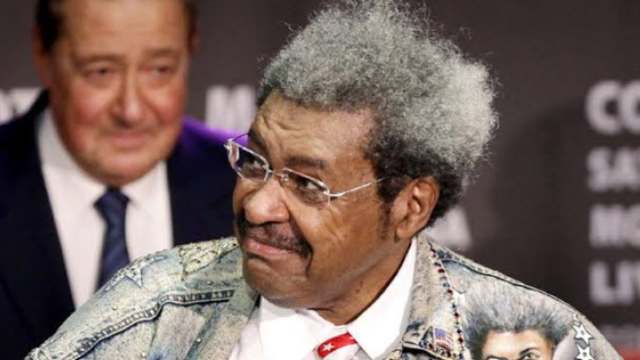Don King is a legendary figure in the world of boxing, known for his larger-than-life personality and his pivotal role in promoting some of the most iconic fights in boxing history.
With an estimated net worth of $150 million, King has made a name for himself not only as a promoter but also as a highly controversial and often divisive figure.
His career, which spans several decades, is marked by both remarkable achievements and legal and ethical controversies that have shaped his legacy.
Breakthrough in Boxing
King’s breakthrough came in the early 1970s when he managed to secure a record-breaking purse for the legendary “Rumble in the Jungle” between Muhammad Ali and George Foreman in 1974.
The fight, held in Zaire (now the Democratic Republic of Congo), was a landmark event in boxing history, and King’s ability to negotiate a $10 million purse with the Zairean government put him at the forefront of boxing promotion.
This was followed by other major fights, including Ali’s “Thriller in Manila” against Joe Frazier in 1975. These high-profile events cemented King’s status as a powerhouse in the boxing world.
In addition to working with Ali, King promoted numerous other boxing greats, including Mike Tyson, Larry Holmes, George Foreman, and Evander Holyfield.
His reputation as a master of negotiation and deal-making allowed him to control some of the most lucrative fights in boxing history, helping to build his fortune over the years.
Controversies and Legal Issues
However, Don King’s career has been anything but controversy-free. His legal troubles began with his early criminal conviction and continued throughout his career as a boxing promoter.
King faced multiple lawsuits from boxers who claimed he had cheated them out of their rightful earnings.
One of the most notable legal battles involved Muhammad Ali, who alleged that King had underpaid him by over $1 million for their fight in the 1980s.
Although the case was settled outside of court, the relationship between the two became strained, and King’s reputation for questionable financial dealings was further solidified.
Other high-profile boxers, including Larry Holmes, Mike Tyson, and Tim Witherspoon, also accused King of taking advantage of them financially.
Tyson, in particular, sued King for $100 million, claiming that King had stolen millions of dollars from him during their decades-long relationship. Ultimately, King settled with Tyson for $14 million, but many still view these legal issues as a stain on his career.
Despite these controversies, King’s skill in the boxing world continued to earn him money and fame. He remained one of the most influential figures in boxing promotion, working with both established champions and up-and-coming fighters.
Other Ventures and Philanthropy
Beyond boxing, Don King dabbled in other ventures, most notably managing Michael Jackson’s Victory Tour in the 1980s and purchasing the Call and Post newspaper, where he served as editor for several years.
While these ventures did not have the same level of success as his boxing career, they helped expand King’s influence outside of the ring.
King also became known for his charitable efforts, particularly during the holiday season. He hosted an annual turkey giveaway in South Florida, providing thousands of free turkeys to local residents in need.
This act of generosity, along with other charitable initiatives, helped to somewhat soften his controversial image.
Legacy
Don King’s net worth of $150 million is a testament to his success in the boxing world, but it also reflects the complexity of his career.
While he is revered for promoting some of the most memorable moments in boxing history, his reputation has been tarnished by allegations of financial exploitation, legal disputes, and ethical concerns.
Nonetheless, his impact on the sport of boxing is undeniable. His ability to market fights, negotiate huge purses, and bring the sport to a global audience is a key part of his legacy.
Despite the controversies that have followed him, Don King remains one of the most influential figures in the history of sports promotion, and his story is a mixture of genius, controversy, and resilience.




